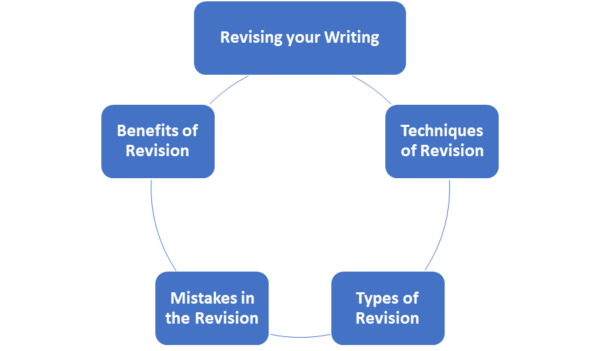Revising your writing is an important part of the proofreading process. It helps to ensure that your writing is accurate, consistent, and error-free. Here are some benefits of revision:
- Accuracy: By revision, you can ensure that your writing is accurate and error-free. This is important because it will improve the credibility of your work and make it more appealing to readers.
- Consistency: By revision, you can ensure that your writing is consistent. This is important because it will make your work more readable and consistent.
- Error-free: By revision, you can ensure that your work is free of errors. This is important because it will make your work more accurate and error-free.
- Appeal to readers: By revision, you can improve the appeal of your writing. This is important because it will make your work more understandable and appealing to readers.
Techniques of Revising in your Writing
Revising your writing can be a daunting task, but it’s one that is essential for improving your work. Here are some techniques to help make the revision process easier:
- Make a list of the changes you want to make. Because this will help you to focus on specific areas of your writing that need improvement.
- Take the time to read your work critically. So, this will help you to identify any areas that need more work or that could be improved in terms of grammar, structure, or style.
- Use a revision guide or software to help you with your revisions. Because these tools can provide you with helpful tips and suggestions for improving your work.
- Take your time with the revisions. And, don’t rush through the process in order to get your work published as quickly as possible. Instead, take the time to improve your writing properly.
Different Types of Revision in Writing
- Type I: A quick and superficial revision that corrects grammar, punctuation, and syntax errors.
- Type II: A deeper revision that addresses the author’s original ideas, content, and message.
- Type III: A revision that improves content and organization, as well as overall flow and structure.
- Type IV: A revision that addresses the author’s overall tone, style, and voice.
Common Mistakes in the Revising your Writing
Revising your writing is an important part of the editing process. But there are mistakes that can be made in revision that can have a negative impact on your work. Here are four common revision mistakes to watch out for:
1. Not Editing Your Work Properly
Once you’ve completed your writing, it’s important to edit it properly. This includes removing any extraneous words, fixing grammar and spelling mistakes, and reorganizing your text if necessary. If you don’t edit your work, your revisions will be ineffective and your readers will be left with a poorly written document.
2. Skipping the Editing Process
Although editing your work is important, it’s not the only step in the revision process. You also need to proofread your document for errors. Checking for typos, missing words, and inconsistencies will help to ensure that your readers understand your writing.
3. Making Changes Without Prior Proofreading
Changes made in revision without first checking for errors can lead to ambiguity. So, you need to proofread it before revising it. It will help you to make your writing free of mistakes.

